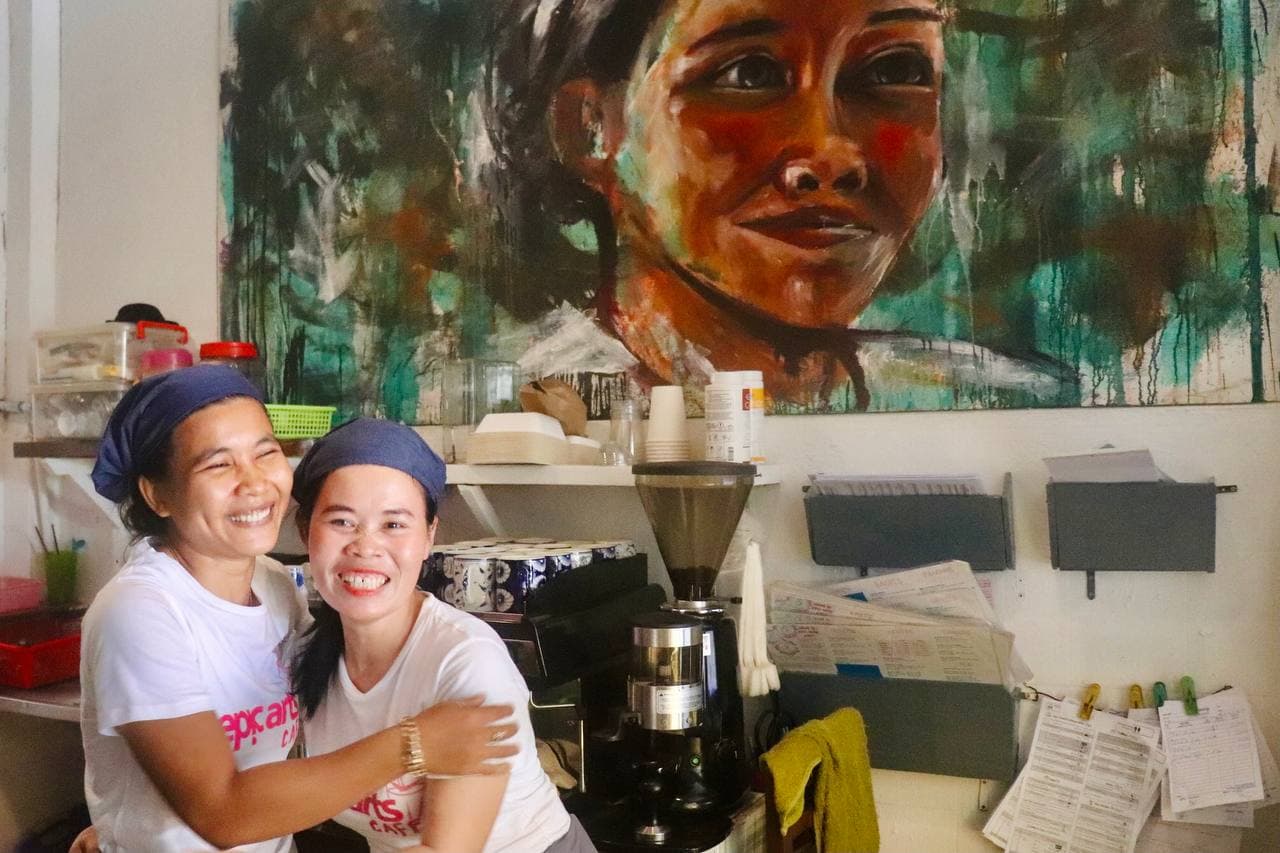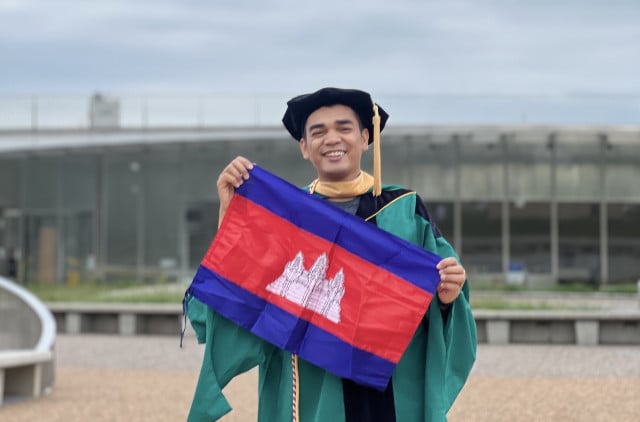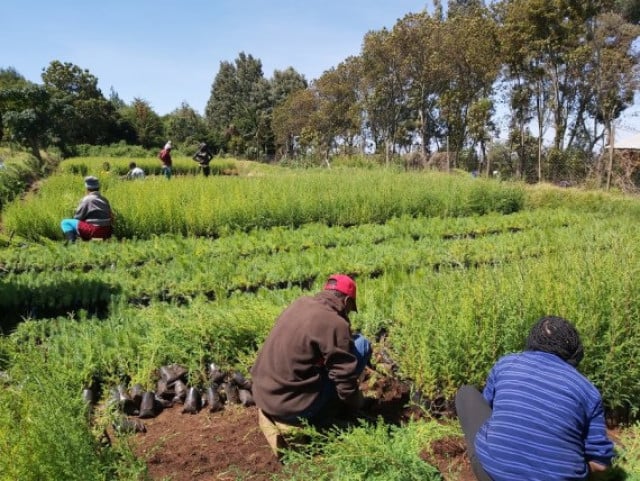Epic Arts Celebrates its 20th Anniversary, Hoping the Voice of Disabled People Remains Heard
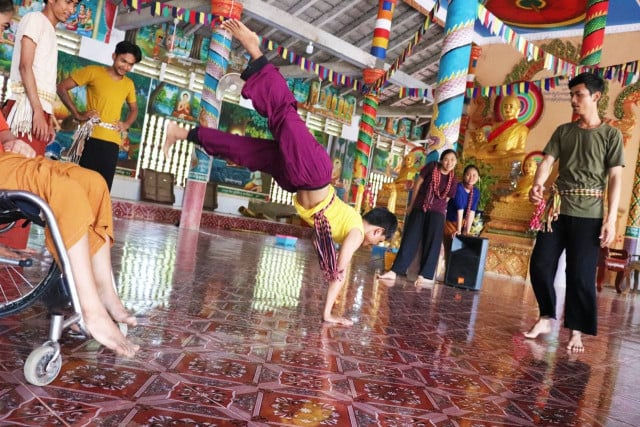
- By Teng Yalirozy
- December 24, 2021 10:58 AM
While a great deal has been done so they can fully play a role in the country, their path still is a difficult one
PHNOM PENH--As Cambodia reached the lower-middle-income country status in 2015 according to the World Bank, some of its people continued to face a great many challenges.
These included people with physical disabilities. “Back in the past, awareness of disability in Cambodia was not widely spread, and people tended to notice the disability of the disabled people rather than their abilities, which reduced their opportunity to get involved in society,” said Onn Sokny, a senior director of the NGO Epic Arts.
In addition to people with disabilities due to physical conditions, there were those—soldiers and civilians—injured due to the years of war in the country, including land mine accidents that had left many people maimed, she said.
All this led Epic Arts to come to Cambodia. Founded in 2001 and registered as a charity in the United Kingdom in 2003, the organization became active in the country in 2006, registering with the Ministry of Foreign Affair and International Cooperation the same year.
Its goal? To help ensure the equal rights and social participation of physically disabled people who tend to be vulnerable, Sokny said.
Starting this month and until March 2022, Epic Arts is celebrating its 20th anniversary in the UK and 15th anniversary in Cambodia.
Changing Perceptions and Creating Opportunities
When the country started to rebuild in the 1990s, people with disabilities went about trying to earn a living.
Some of them risked their lives working on construction sites. Others could not get work due to discrimination, being seen as disabled due to sins they had committed in past lives, Sokny said. Plus many have had not been able to go to school and could not qualify for jobs.
This was her case when she started working at Epic Arts 17 years ago. Onn Sokny, who has suffered from paraplegia since birth, joined Epic Arts in 2004 as an assistant accountant. Offered many opportunities along the way, she now is the country director of Epic Arts, which is based in Kampot City.
“We are the agent who facilitates and give power to disabled people as well as disseminate their voices to the society and relevant stakeholders,” she said.
Epic Arts shares the voices of people with disability through arts and creative events as they believe the arts gather and unite disabled people and typical people.
“Art encourages them to speak up and [this is why it] is the first step that we took to work with disabled people,” Sokny said.
Cambodia has 524, 000 disabled people, which is equivalent to 4 percent of the total population of 16 million, she said citing the organization’s latest report. Epic Arts’ mission is to promote equality for all and celebrate diversity, as well as provide quality works through creative programs.
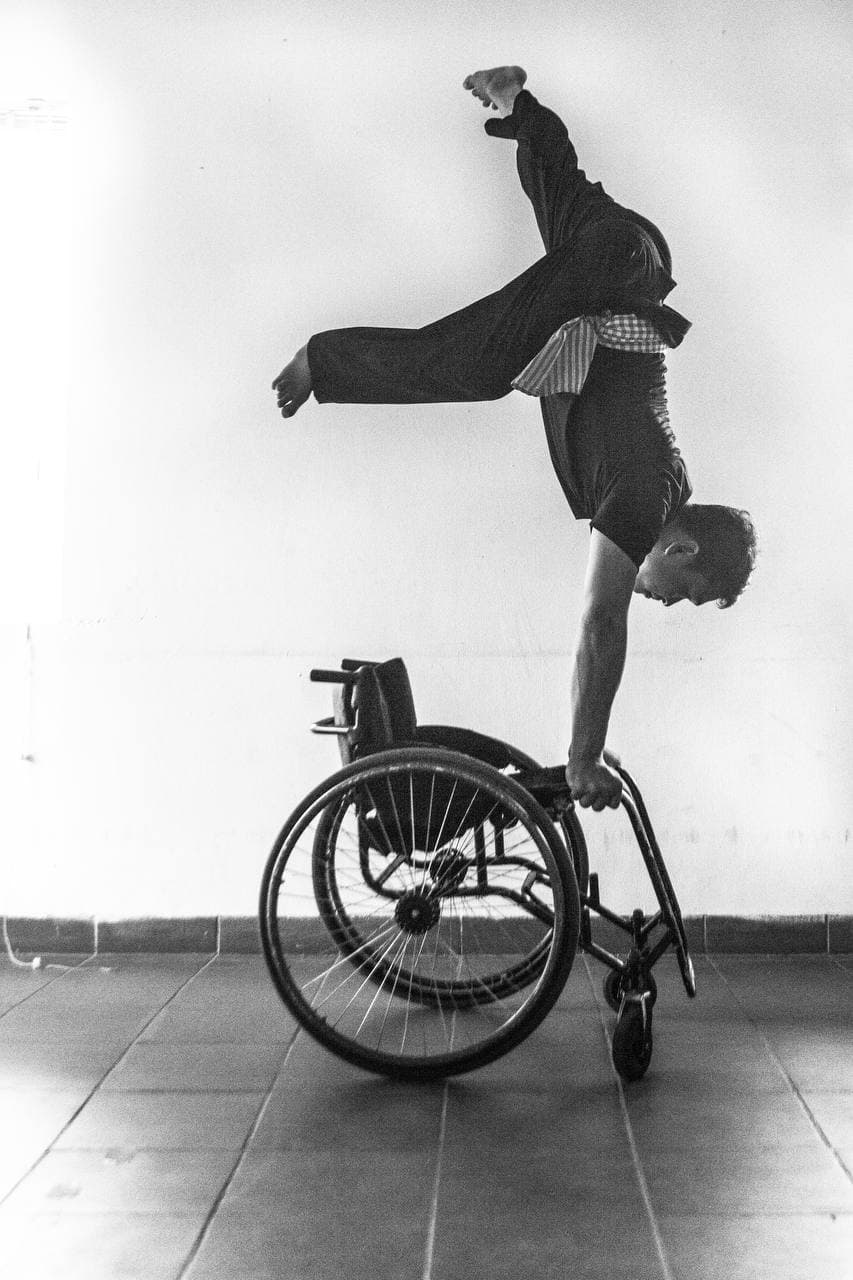
Epic Arts has three major programs: inclusive education, community, and social enterprise.
The inclusive education program consists of special education for children with learning disabilities and an inclusive art course that offers training in contemporary dance and theatre to disabled as and non-disabled people although the priority is given to people with disability in at least 80 percent of the case.
Inclusive education also offers soft skills, such as leadership, communication, management, and foreign languages.
Since 2019, more than 150 children with a learning disability have received education, while the organization has worked with more than 200 parents. “We focus on quality rather than quantity because teaching disabled children is different from teaching typical children, and a lot of time and assistance is needed,” Sokny explained.
The inclusive art course has provided art training course to nearly 100 students, of whom 85 percent are disabled people. It is a two-year course and has had to be put on hold over the last two years due to the COVID-19 outbreak.
Among these artists, 94 percent graduated with 81 percent of them getting jobs after graduation. Some of them have become dancers and artists working for Epic Arts that has staged performances in Kampot City as well as in Phnom Penh. Others have worked at the coffee shop Epic Arts Café and the creation shop of Epic Arts, which help raise funds for the NGO. And a few of them teach children at Epic Arts while others started their own business or continued their education.
Then there is Epic Arts’ community program whose goal is to work with the government to promote the rights of disabled people and search for them so that they can join Epic Arts. This program involves hosting performances and events, which vary from year to year, to raise awareness about disability in the country.
Epic Arts stage artists have performed in Australia, Hong Kong, India, Japan, Singapore, Thailand and the United Kingdom. “We are proud [of them],” Sokny said. “[T]hey perform to raise awareness about, not only the disabled people, but artists and the problems that Cambodia has regarding disability.”
The other program is the social enterprise program, which generates income, in addition to the fund provided by donors, to support the other two programs and sustain the organization. This program consists of Epic Arts Café, which was open in Kampot City in 2006, has provided jobs to more than 40 people over the last 10 years, and is doing well, Sokny said.
And then there is Epic Creations, which is a shop and workplace for hand-made products ranging with t-shirts with original designs to tableware and handmade toys designed and made by its crafts people.
According to Sokny, nearly half of Epic Arts’ annual budget comes from donors while 30 to 40 percent is generated through Epic Arts Café and Epic Creations.
The 20th anniversary of Epic Arts is celebrated in December 2021 and January 2022 to acknowledge the hard work of the staff and pay homage to the donors who have been relentlessly supporting Epic Arts Sokny said. Then in March 2022, Epic Arts will hold a major performance and tour Cambodia’s provinces, she said, the pandemic permitting.
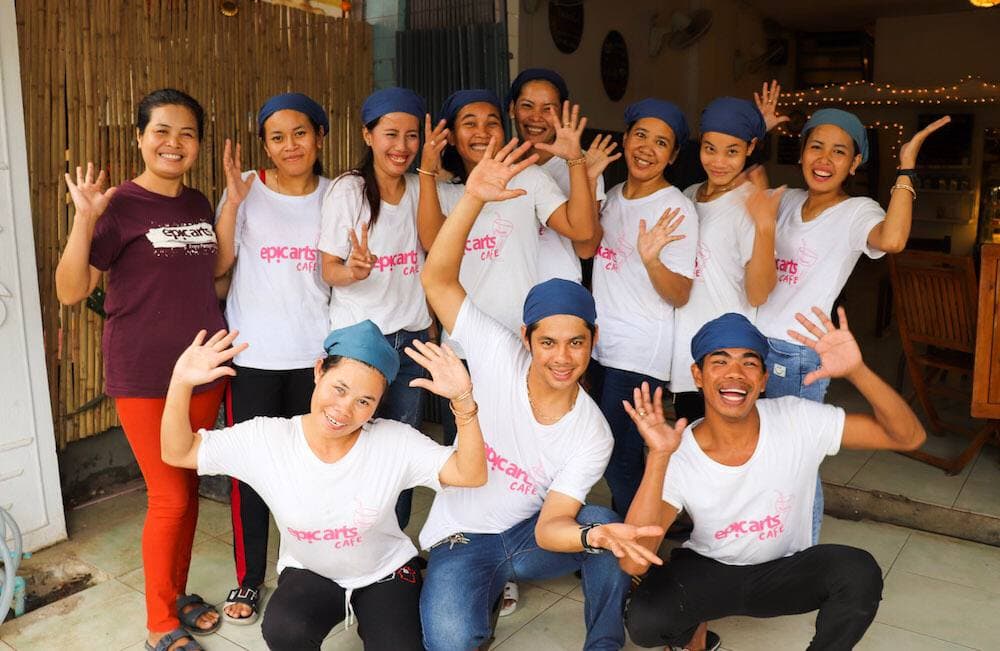
People’s attitude and perception are changing, but concerns and challenges linger
Sam Kagna, who joined Epic Arts in 2010 and is a special education team leader, said the organization has been an eye-opening experience for her in terms of the difficulties that children with learning disabilities face.
This has enabled her to view the world with its diversity with sympathy, she said, adding that she hopes that her disabled students will be able to find jobs and live normally like people with no disability.
“I would like to see special education become a branch in public schools and disabled people have jobs like other people,” Kanga said. “I urge people from different walks of life, and especially families and communities, to value disabled people and encourage them to receive an education just like typical people.”
As Onn Sokny explained, the situation has evolved, and for the better, over the last 10 years. Today, those with disability are given value and enormous opportunities as more and an increasing number of people in the country are putting an end to their narrow mindset and no longer see disability as due to a person’s karma. However, some people still clutch to the idea of karma and past sins, she said.
“[People with disabilities] show their talents and that they can work just like other people, so the discriminative mindset tends to be gradually discarded,” she said. “Plus, not many [cases of] discrimination have occurred since we started working in 2006. Moreover, the Ministry of Social Affairs, [Veterans and Youth Rehabilitation] also closely works with us to improve the rights and situation of the disabled people in Cambodia.”
Still, she said, some challenges remain and the full participation of people with disabilities in society has yet to happen, Sokny said.
“I thank the government, donors, and our partners for their assistance, but making sure that [people with disabilities] and their families are able to fully participate in society and have a quality life is still a challenge,” she said.
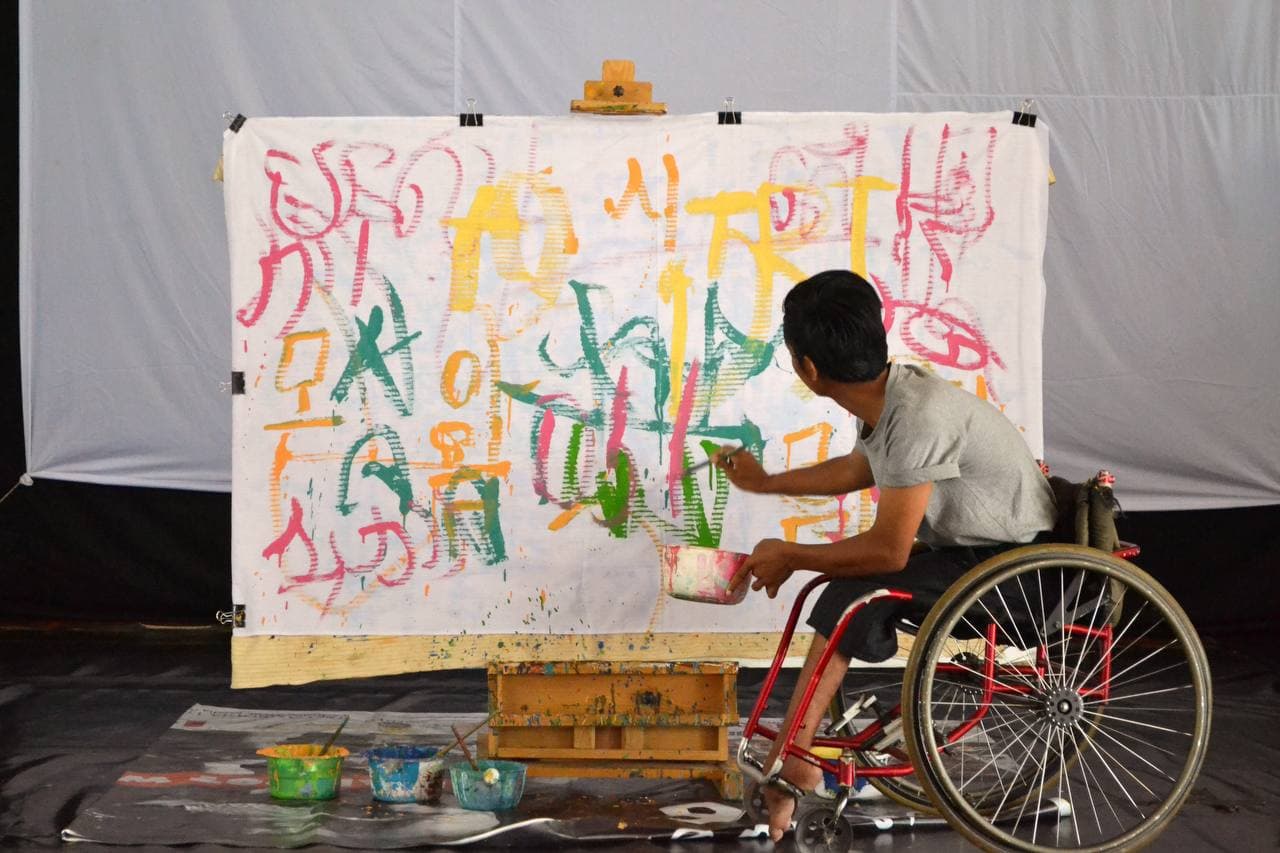
Epic Arts cannot do this alone and everyone’s help and cooperation is essential to help, Sokny said, “promote the right of disabled people as well as the equal rights of every person to fully participate in society.”
Meanwhile, Sokny is concerned that one day, Epic Arts will have put a halt to its work since the NGO’s budget heavily depends on donors. Changing the image and perception of disability is advocacy and public works, which require a great amount of time and energy and is hard to become independently sustainable.
“We know that if we only depend on the funds of donors, one day we won’t have enough money to continue our work as our work is a long-term work—not only one or 10 years,” she said.
Which is why the NGO is calling on the public to keep supporting Epic Arts Café as the Epic Creations shop to help contribute to the annual budget of the organization. “Supporting the coffee shop means supporting our work and disabled people,” Sokny said.
Still, Sokny, who has personally faced such difficulties in her life, is worried that the voices of disabled people will be forgotten some day if they do not receive sufficient leadership training and education. Many barriers such as social pressure, family or mental health still prevent them from going to school.
“If they cannot go to school, they won’t have leadership skills,” she said. “If the leadership skills among people with disabilities are low, their voices will be lost.”
So a great deal of work remains to be done.
